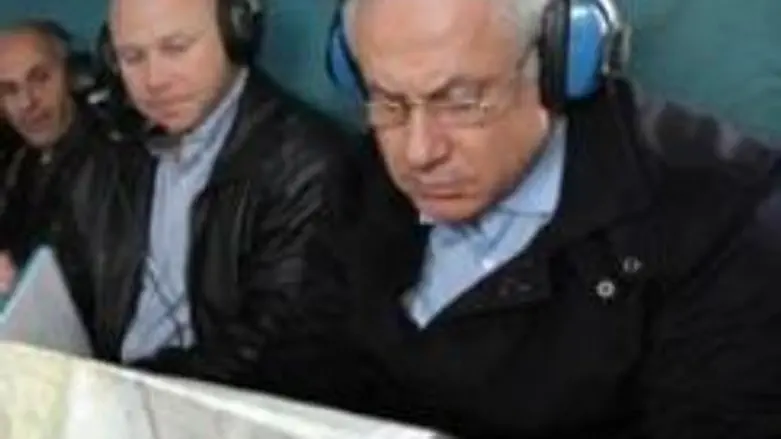
The government has dedicated today’s meeting to the memory of the six million Jews starved, tortured and massacred in the Holocaust. This Wednesday, the United Nations and at least 20 countries will mark International Holocaust Day.
Prime Minister Binyamin Netanyahu, speaking at the start of the weekly Cabinet meeting, said, “I hope the United Nations will remember what happened when the Jews did not have a state - and the privilege and obligation of the international community to defend the Jewish State’s existence.”
I hope the UN will remember... its privilege and obligation to defend the Jewish State’s existence.”
The date of January 27 was chosen for this purpose in 2005 because it was the day, in 1945, that the Russian Army liberated the Nazis’ Auschwitz death camp. Germany, Britain and some other countries commemorated Holocaust Day on this date even before the UN adopted it.
Former Israel Chief Rabbi Yisrael Meir Lau, the Chief Rabbi of Tel Aviv, who survived the Holocaust as a child, participated in the special Cabinet session. Rabbi Lau also serves as Chairman of Yad VaShem.
Netanyahu displayed a photograph of a survivor holding her great-granddaughter’s hand. The survivor’s tattooed number is clearly visible on her arm, and the photo will be displayed at the UN as well.
“This is the essence of the history of Zionism,” Netanyahu said.
On Wednesday, a special ceremony will be held at Auschwitz, where about one million Jews were murdered and massacred. Among the participants will be President Shimon Peres, Rabbi Lau, the president and prime minister of Poland, and the Chief Rabbis of Poland and Lodz.
Auschwitz-Birkenau, the largest of the German concentration camps, was named for the two towns the camp in and around which the camp was built; the Germans essentially destroyed the small Polish village of Birkenau to make way for it. Nazi leader Heinrich Himmler designated Auschwitz as the site of the "final solution of the Jewish question in Europe," and it received transport trains of Jews from all over Nazi-occupied Europe for 30 months, until late 1944.
Some 1.1 million people, 90% of them Jews, were killed in the camp’s gas chambers or died of starvation, forced labor, disease, medical experiment, shooting, beatings, and the like.